Teaching students using the ACS method with elements of Open Labyrinth and Team Based Learning
At the Department of Pharmaceutical and Toxicological Chemistry, leading teachers conducted open classes using active teaching methods. Asilbekova A.D., Acting Professor, conducted a lesson in the VTFPA-03-20 group on the EP "Technology of Pharmaceutical Production" using active methods - PBL and AKS with elements of Open Labyrinth, Dzhanaralieva K.S., Senior Lecturer - V - FKB-01-19 group, Karabaeva A.N., senior teacher - V-FKB-02-19 group on EP "Pharmacy" using active methods - "Analysis of specific situations" (ACS).
The interactive method of ACS is one of the methods of problem-based learning based on the collective mental activity of students. AMOs motivate the interest of students and contribute to a more in-depth study of the material, provide students with the opportunity to widely use new information resources in professional training.
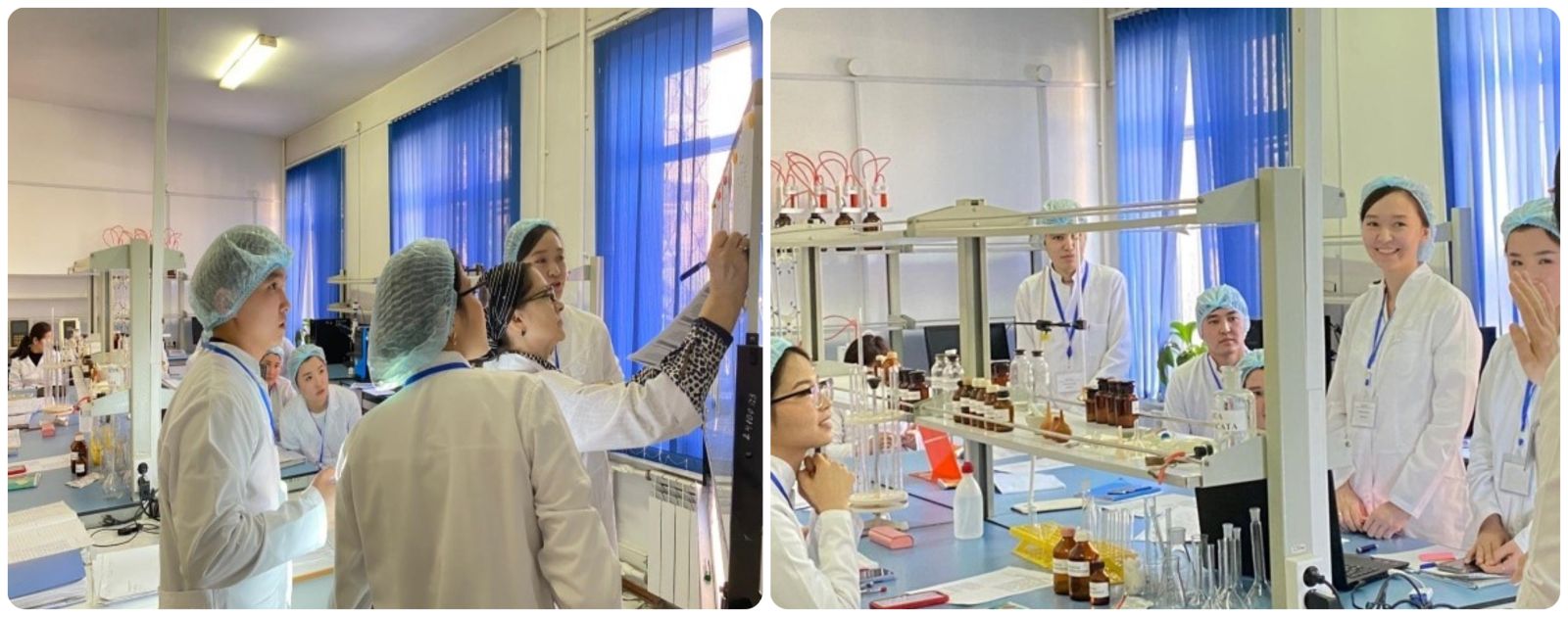
For the lesson, a situation was voiced, taken from the real practice of the NCELS testing laboratory system for quality control of medicines: receipt of a notice at a retail pharmacy about the selection of samples of medicines from the market, taking into account a risk-based approach to confirm the quality and conduct laboratory tests.
To solve a specific situation, students performed the role of an analytical chemist in a testing laboratory for quality control of medicines.
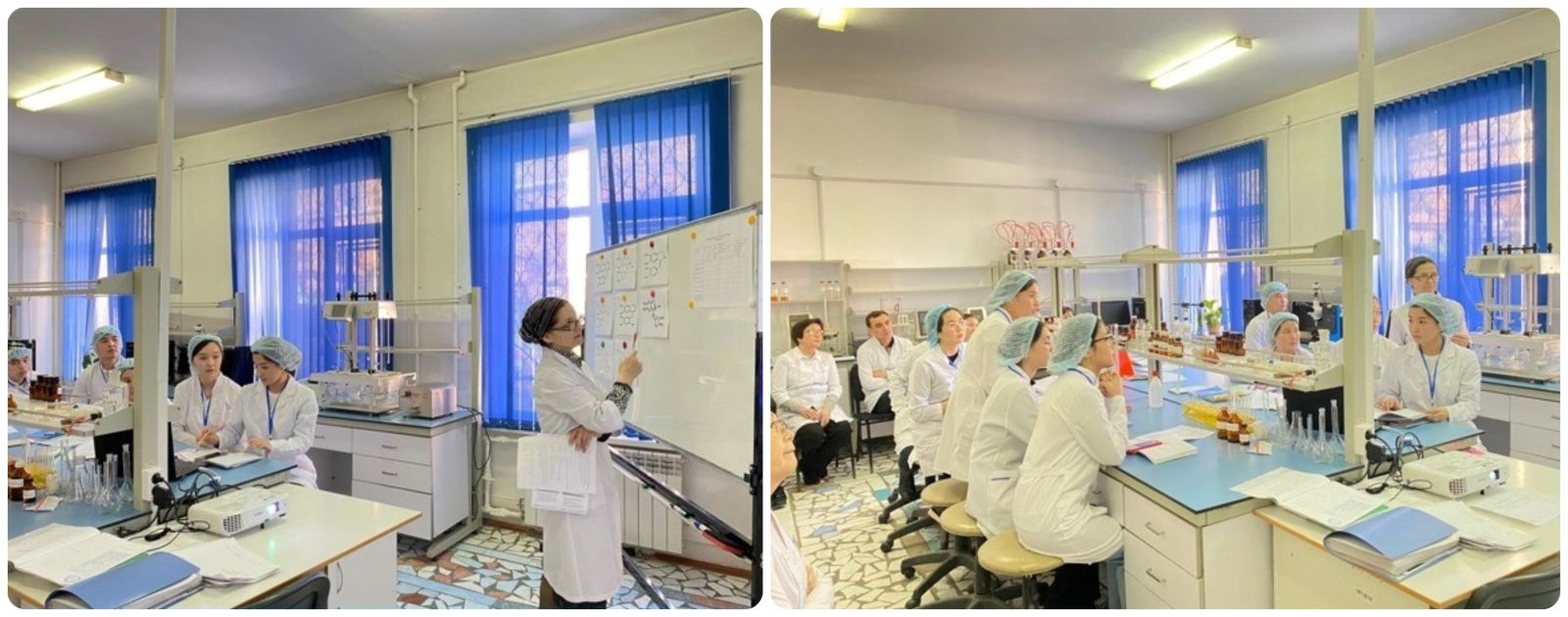
Students in pharmaceutical analysis conducted the identification and analysis of the purity of papaverine hydrochloride and drotaverine hydrochloride, as well as the substance of riboflavpine, in the classroom, students became witnesses and accomplices in solving problem situations taken from professional practice. The trainees were required to deeply analyze the situation and make the most successful, optimal decision of all possible in the proposed situation.
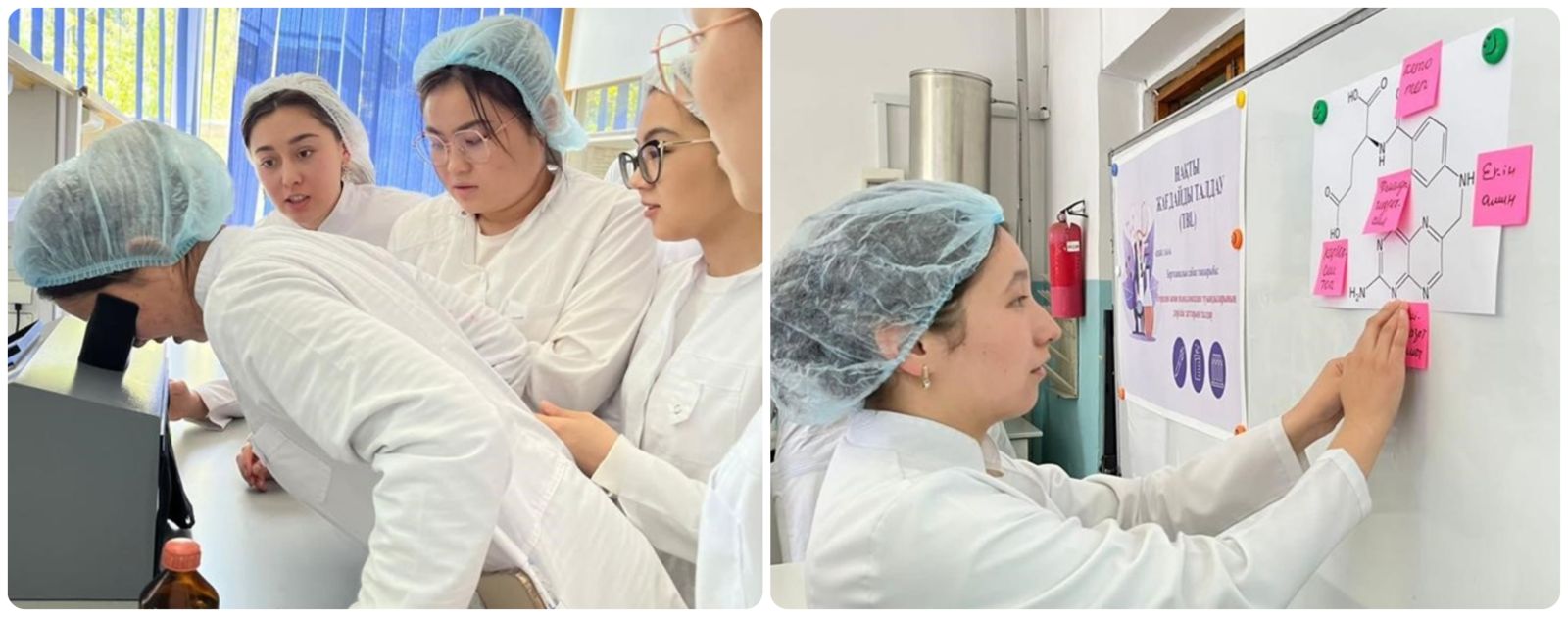
Conducted laboratory classes using active methods ensured active educational and practical activities of students, forming their ability to independently find, creatively process and use the necessary information from various sources for pharmaceutical analysis and quantitative determination of drugs, thereby effectively conducting the laboratory part of the lesson.

The students of the EP “Technology of Pharmaceutical Production” had the goal of using the saponification of fats to synthesize soap and determine the content of fatty acids in finished laundry and toilet soaps. To complete the work, the study groups were divided into two small groups.
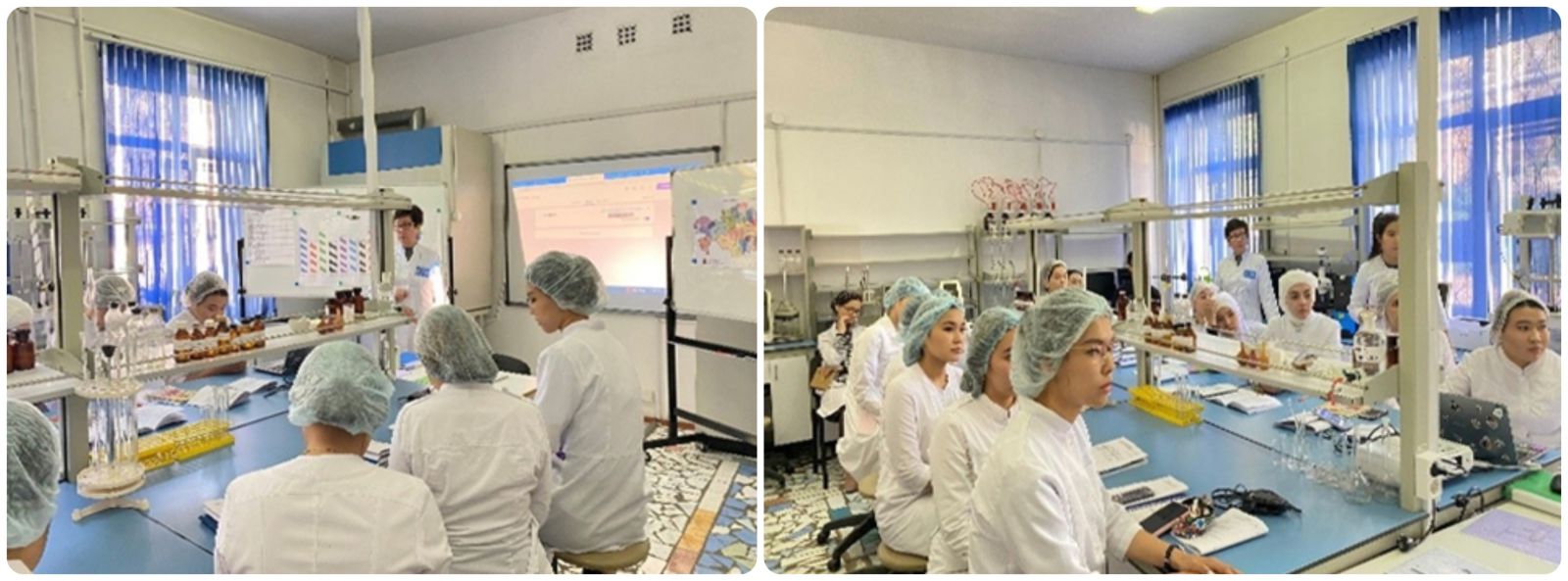
To consolidate the educational material, the students were offered the task of assembling a chemical-technological scheme for the production of laundry and toilet soaps, for the solution of which the knowledge gained in the discipline "General Chemical Technology" was required.
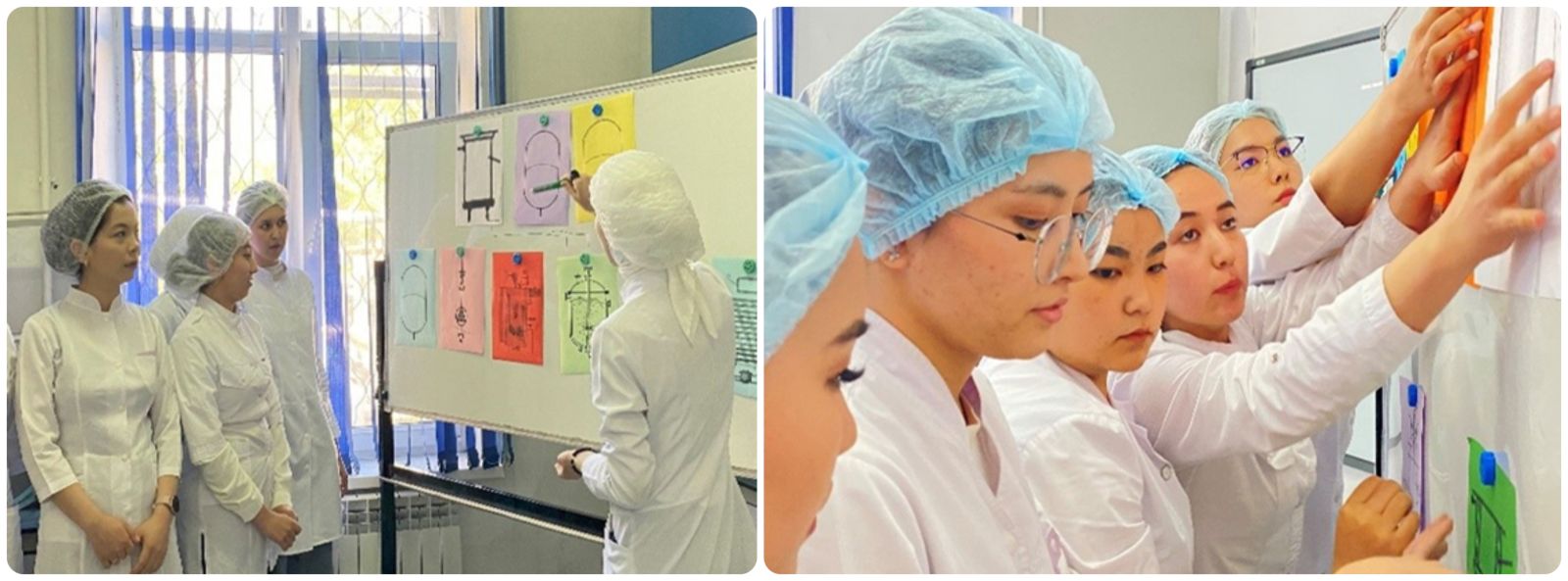
The method of situation-oriented learning included both individual (testing on the google platform) and group work of students using virtual production - work in the "Open labyrinth", the essence of which was to solve the problem in a virtual production environment. The use of situational tasks made it possible to focus students' attention on certain problems and expand the possibilities of the educational process, contributed to its optimization and increased students' motivation to study this subject.
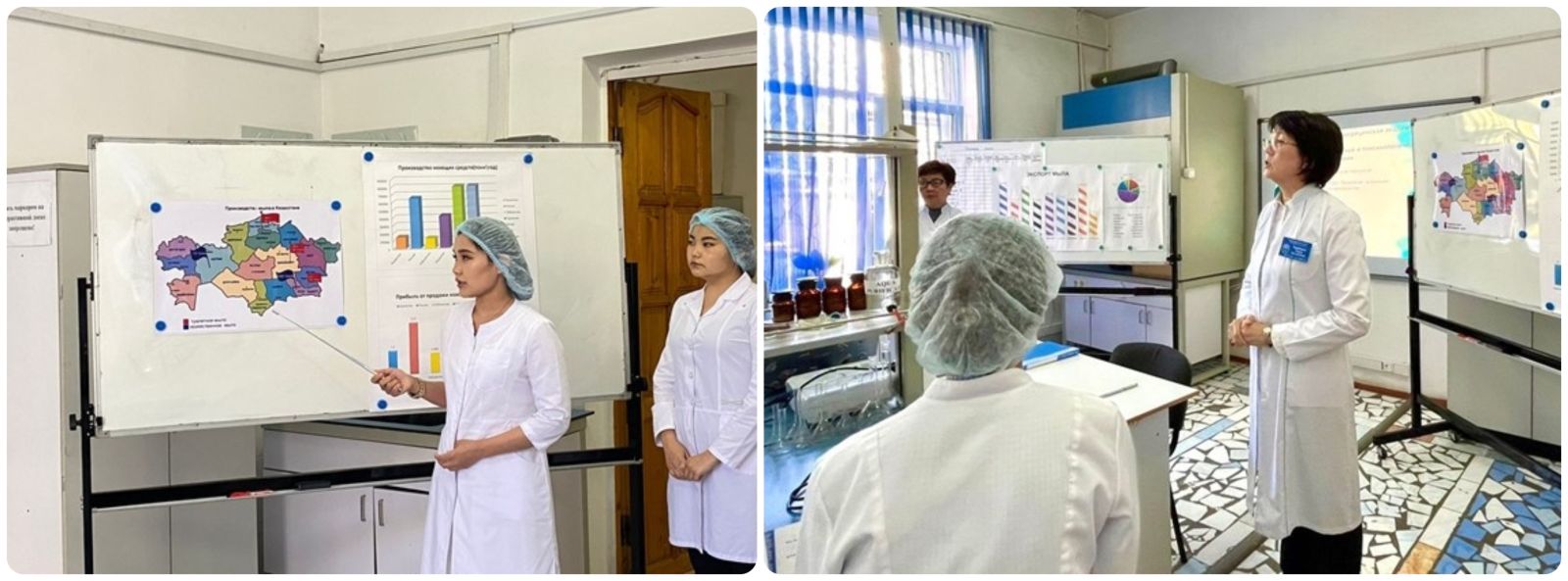
The use of situational, problem-oriented learning is a good alternative to passive forms of conducting classes, develops communication skills, contributes to a better mastery of educational material, favors the development and improvement of both behavioral and professional skills.
 740 views
740 views
